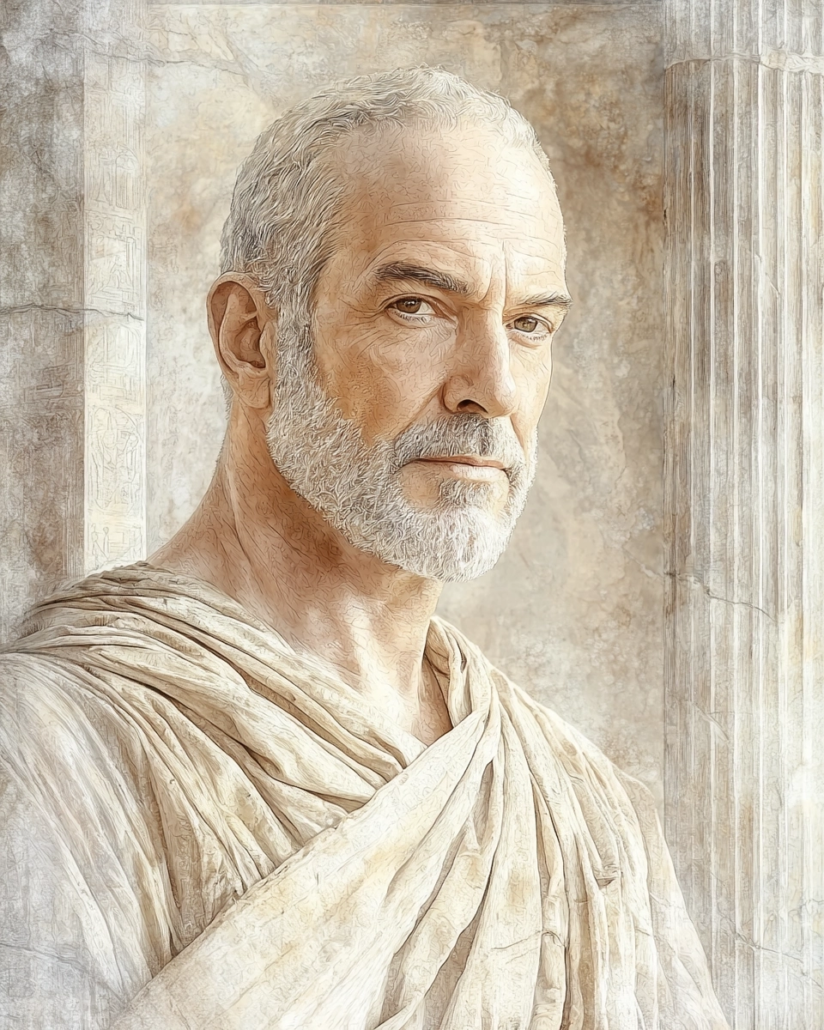Antipater of Tarsus: Teachings on Wisdom and Virtue 🌱
Wisdom and Virtue
Antipater of Tarsus (born c. 200 BCE – died c. 130 BCE) was an influential philosopher of the Middle Stoa, widely recognized for his teachings on ethics and rationality. His philosophy emphasized that virtue is the ultimate purpose of life and the path to true happiness, a perspective that resonated deeply with his contemporaries and students alike.
Historical Context and Influence
Antipater of Tarsus lived and taught primarily in Athens, where he developed key ideas in Stoic philosophy and attracted a large following. This thinker’s teachings were especially significant in shaping stoic thoughts on ethics, as reflected in his most famous work, On Virtue. Deepen: Wikipedia
Why is Antipater of Tarsus still relevant today?
The philosopher’s insights on managing one’s thoughts and prioritizing inner peace remain profoundly relevant in today’s world. His philosophy offers a timeless guide to achieving clarity and calm in chaotic circumstances and cultivating resilience. Read more: Explore Stoicism Today
Key Teachings
Antipater of Tarsus emphasized that virtue is the highest good and that all other external factors are secondary to inner moral excellence. He argued that true happiness is found in aligning one’s actions with ethical values rather than seeking material possessions. These principles were highly respected and had a lasting impact on the Stoic school.
Legacy
- Antipater inspired not only his immediate students but also prominent later thinkers, including Panaetius and Cicero.
- His ideas on ethics and rational thought have profoundly shaped the evolution of Stoicism.
- Through his teachings on virtue, Antipater left a lasting mark on both ancient and modern philosophy.
Stoic cardinal virtues that he embodied
- “Wisdom – the ability to think clearly and make rational decisions.”
- “Courage – the pursuit of virtue despite challenges.”
- “Justice – the moral obligation to act fairly and honorably.”
- “Temperance – control over impulses and desires.”
Quotes attributed to him
- “Virtue is the only true good that is under our control.”
- “Happiness does not depend on external circumstances but on our inner disposition.”
- “True freedom arises from mastering one’s own passions.”


